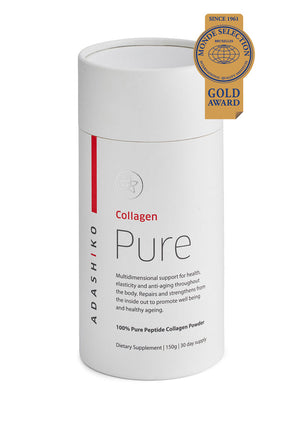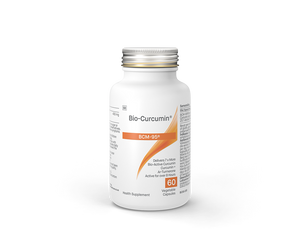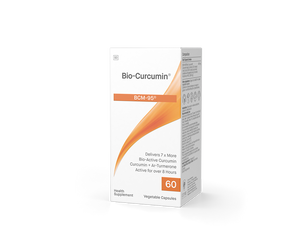Description
FlammeFiXXTM was formulated to assist in fighting inflammation in our bodies.
Inflammation is our body’s natural immune response to infection, irritation or injury, but when it continues for too long it may create a chronic systemic response and damage the body at the cellular level.
In fact, inflammation is at the root of nearly every chronic health condition, including diabetes, heart disease, dementia, obesity and cancer, and can be ramped up by lifestyle factors such as chronic stress, poor diet, toxin exposure, lack of exercise and not enough sleep.
There are two types of inflammatory reactions:
acute inflammation which is the human body’s normal response to microbes, tissue damage or metabolic stress. This type of inflammation forms part of the defence system of the body and is considered to be “good”;
chronic inflammation which occurs when the inflammatory response continues for too long, leaving your body in a constant state of alert. Over time, chronic inflammation may have a negative impact on your tissues and organs.
The main causes of chronic inflammation include:
untreated causes of acute inflammation, such as an infection or injury;
an autoimmune disorder, which involves your immune system mistakenly attacking your own healthy tissue;
long term exposure to irritants, such as industrial chemicals, moulds or polluted air.
An increasing body of evidence indicates that a close link exists between chronic low grade systemic inflammation and chronic diseases such as: diabetes, metabolic syndrome, cardiovascular disease, cancer, rheumatoid arthritis, inflammatory bowel disease, asthma, obesity, chronic obstructive lung disease and possibly the chronic fatigue syndrome. In addition, chronic, low grade inflammation in the brain is implicated in various forms of mental problems such as depression and certain forms of dementia.
Systemic inflammation and the gastrointestinal tract
Accumulated knowledge and observations point to the gastrointestinal tract as frequently being the site where the inflammatory reactions are initiated. The gastrointestinal tract is not simply the organ where digestion and absorption of nutrients takes place, but it is also involved in immune functions. Approximately 70% of the immune system resides in the intestines.
The digestive system helps us to absorb nutrients from food, which gives us energy and building blocks for healing and repair. To function optimally the gastrointestinal tract requires a healthy immune system and a well-functioning mucosal barrier. The mucosal barrier (the intestinal epithelium) is built of a single layer of cells. The thinness of this layer facilitates the absorption, secretion and filtration of nutrients. The intestinal mucosal barrier forms part of our defense mechanism in the immune system.
The cells in the mucosal barrier are strongly attached to each other through tight junctions, which form a semi-permeable protective barrier so that undigested proteins and toxins do not readily cross the barrier. Once these tight junctions are damaged due to factors such as stress, food sensitivity, chronic infection, chemical toxins or ageing, the result is an interrupted inflamed barrier that allows undigested food particles, bacterial toxins and microorganisms to pass through into the blood stream. This condition is often referred to as the leaky gut syndrome.
The lymphocytes in the blood stream respond to this undigested material by triggering the immune system and causing persistent inflammation throughout the body. Symptoms of the leaky gut include indigestion, bloating, gas, cramps, constipation, food sensitivities, fatigue, headaches, joint pains and skin inflammation, to name a few. Individuals
with chronic inflammation often experience body pains, frequent infections, weight gain, insomnia, depression, anxiety, and mood disorders. Tests for high sensitivity C-reactive protein (hs-CRP) and erythrocyte sedimentation rate (ESR) can provide quantitative data about systemic inflammation.
The gastrointestinal tract (GIT) and the intestinal microbiome*)
The well balanced, healthy intestinal microbiome maintains a symbiotic relationship with the host and regulates several important functions including host metabolism, immunity, and intestinal barrier function.
The natural healthy gut microbiome controls gut health by communicating with the intestinal cells, digesting certain foods and preventing disease-causing bacteria from sticking to the intestinal walls. Overall, it has a positive effect on our health and contribute to our body’s natural processes.
Disturbances in the delicate balance between the many natural intestinal microorganisms (bacteria, yeasts, viruses, fungi, protozoa) can lead to an imbalance, referred to as dysbiosis. Such an imbalance may lead to a range of conditions of ill health, including intestinal inflammation and inflammatory bowel disease (IBD).
Recent studies have found that many factors may alter the balance or composition of the gut microbiome, with the effects of diet being most frequently studied. External stressors, including environmental stressors, antibiotic exposure, sleep disturbance, physical activity, and psychological stress, may also play important roles in altering the composition of the gut microbiome.
The intestinal microbiome is a community of microorganisms such as bacteria, fungi, protozoans and viruses that inhabit the human intestinal tract. Our bodies are home to about 100 trillion bacteria and other microbes.
FlammeFiXXTM
60 capsules per container
Ingredients:
|
Active ingredients per capsule:
|
|
Flora blend*)
|
50mg
|
|
L-glutamine
|
25mg
|
|
L-arginine
|
20 mg
|
|
L-glycine
|
20mg
|
|
L-tyrosine
|
16.5mg
|
|
Glucosamine HCL
|
100mg
|
|
Mixture of digestive enzymes**)
|
22.5mg
|
|
Betaine HCL
|
32.5mg
|
|
Berberine
|
9mg
|
|
Quercetin
|
9mg
|
|
Alpha–lipoic acid
|
50mg
|
|
Chromium picolinate
|
0.175mg
|
|
OptiMSM (methylsulfonylmethane)
|
350mg
|
*) Flora blend - a mixture of lyophilised probiotic strains: Lactobacillus acidophilus, Lactobacillus fermentum, Lactobacillus gasseri, Lactobacillus rhamnosus, Bifidobacterium bifidum, Bifidobacterium longum and Bacillus coagulans, in total 5 billion (5x109) viable cells.
**) Mixture of digestive enzymes - amylase, protease 4.5, invertase, diastase, lipase RO, cellulase and lactase.
Directions:
Adults: One capsule to be taken twice a day with a meal or as recommended by the dietary program.
Important:
Persons experiencing hyperthyroidism or using thyroid medication for hypothyroidism should consult their doctor or healthcare professional.
Important:
As for any dietary supplement, it is advisable to consult your healthcare professional. This is particularly relevant if you are taking any medication or suffer from a medical condition. Do not use it if you are pregnant or breast-feeding. Not for use by people under 18 years of age.
Warning:
The suggested oral dosage, as recommended by the manufacturers of FlammeFiXXTM, is likely to be safe for most adults.
Nevertheless, prolonged routine supplementation with the product, without the advice of a healthcare professional, is not recommended. Do not exceed the suggested dosage.
Should you observe any unusual effects, contact your doctor or pharmacist immediately.
KEEP OUT OF REACH OF CHILDREN




 Four payments of $16.25
Four payments of $16.25














